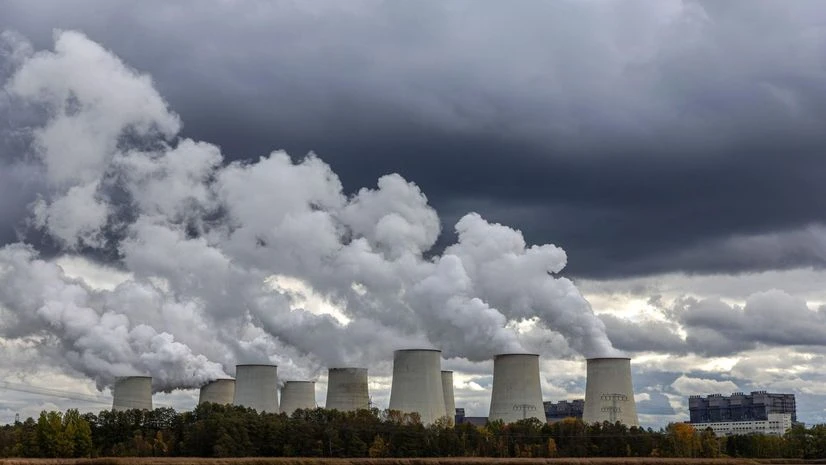Reiterating India's stand on the global climate stage for ‘common but differentiated responsibilities and respective capabilities’ (CBDR-RC), the office of the chief economic advisor batted to put an onus on the developed world for climate finance and emission reduction.
“Developing countries are expected to immediately and completely shift/transition away from fossil fuel-based energy to renewable and green energy,” said the chapter on Financing Climate Action from a collection of essays titled Re-examining Narratives by the office of the chief economic adviser. “In this process, it is surprising that developed countries, which peaked several decades ago – the European Union in the 1970s and the US in the early 2000s – still seek a long leash till 2050. This has turned the CBDR-RC principle on its head.”
Citing studies by the United Nations agencies and independent studies, the report said that the developed world has fallen short on its climate action.
“Further, the performance of the developed countries in achieving their climate actions has also not been encouraging. A recent report by the Council on Energy, Environment and Water highlighted how developed countries may not be able to fulfil their net-zero commitments. Developed countries are expected to fall short of their carbon emission reduction targets for 2030 by a significant margin of 38 per cent,” it said.
Highlighting that India is ahead of meeting its climate action targets which it has self-funded, the CEA’s essay pointed out: “Given that resources must also be made available for other developmental priorities, the budgetary space for climate-related schemes is limited.”
Also Read
The essay laid down some of the initiatives taken by the Indian government to support the National Action Plan on Climate Change (NAPCC) which includes financing through budgetary resources and finance mobilisation based on policy and regulatory measures. Apart from the schemes under the NAPCC, it highlighted the sovereign green bonds, green financing by domestic agencies such as IREDA, GST compensation cess on fossil fuels, and carbon credit trading as some of the key sources fuelling India’s climate action.
Batting for MDBs, which was one of the key discussion areas under India’s G20 Presidency this year, the essay said, “Augmenting public sector resources with multilateral development banks deserves serious consideration.
The MDBs, with their expertise and capacities, can efficiently allocate resources without compromising on their financing of other developmental priorities. There is a need to scale up funding of MDBs by way of general capital increases and the implementation of capital adequacy reforms.”
The essay has hit out at unilateral measures such as the CBAM by the EU and the Inflation Reduction Act of the United States, saying it will hinder the growth pathways of developing nations. “Climate change requires a global response. Any national or regional response will inevitably be narrowly focused and will miss the wood for the trees. The efficacy of such measures in reducing emissions is questionable in and of itself, for these measures may only shift the source of emissions of these regions/countries from consumption to production,” it said.

)
